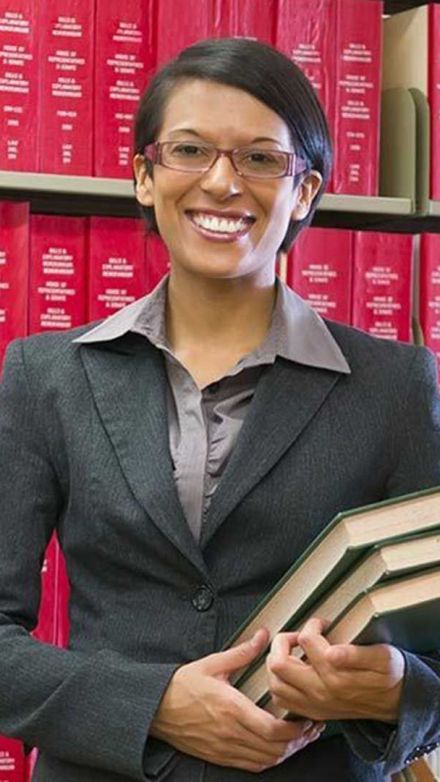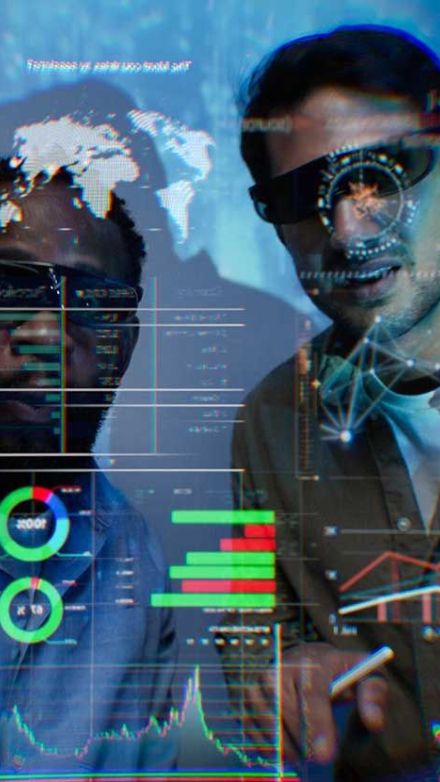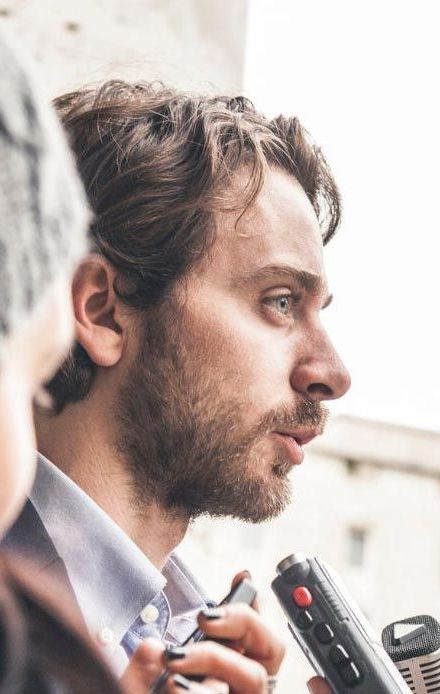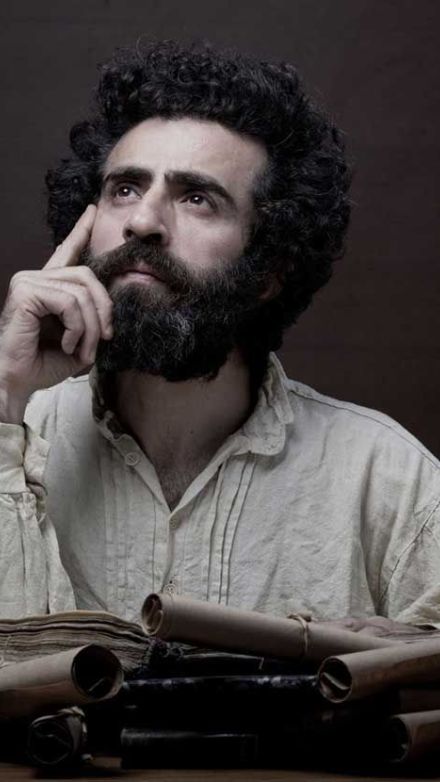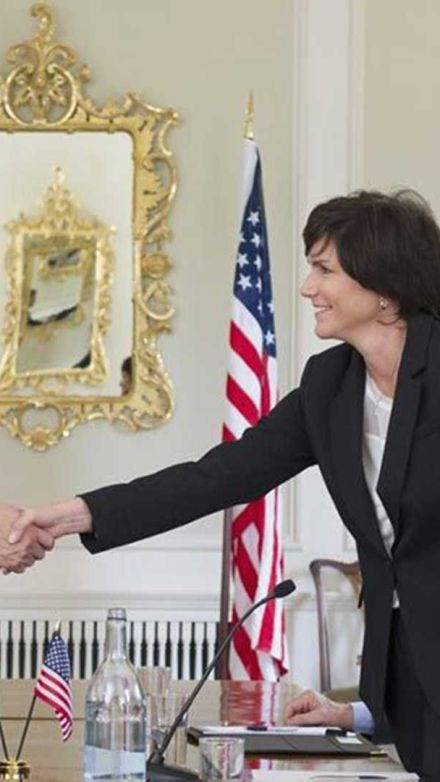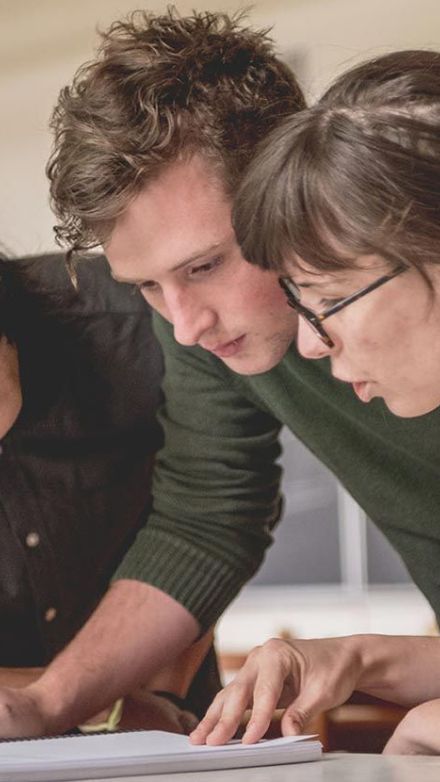After St. John's
Johnnies have a unique education that helps them to lead meaningful lives and succeed across diverse professional fields—often trailblazing new and creative ways to make an impact. At St. John’s College, we are committed to preparing our students for life after college both in and out of the classroom: through the Program and through on-going professional development, funded internships and fellowships, and graduate school preparation.
Explore Career Pathways
Career Pathways
St. John's has developed nine career pathways for students to explore as potential professions. These pathways are supported by strong curricular studies, funded internships and academic fellowships, graduate school preparation and partnerships, study abroad opportunities, and credentialing partners.
By the Numbers

100%
100% of Johnnies are eligible for college-funded internships and research/academic fellowships.

100%
All of the Johnnies who have applied to law school since 2012 have been accepted.
Preparing for a Career in Law
#25
Ranked #25 for Best Career Services by the Princeton Review

82%
Of our alumni say the benefits of their St. John’s education outweigh the financial costs. Only 42% on average at peer institutions.
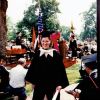
74%
Of our alumni were employed within 6 months of graduation.

70%
Of alumni are employed in mid-level or executive-level positions.
Alumni Success
St. John’s graduates hold such positions as Opinion Columnist at the New York Times; Medical Director at the National Institutes of Health; Research Professor at Harvard Divinity School; Founder of Miyoko’s Creamery; National Reporter at the Wall Street Journal; Chair of the Department of Neurosurgery at the University of Arizona; and Co-Founder of Giphy.




Internships and Fellowships
St. John’s offers paid internships for all students, paving the way for success in a variety of careers and graduate study.



Where do alumni go after St. John’s?
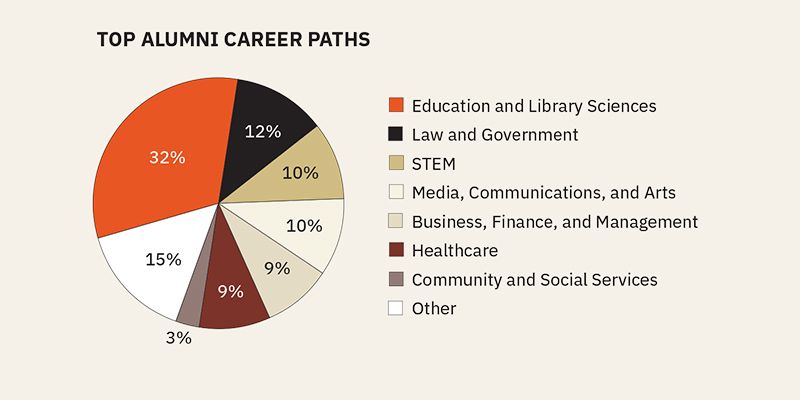
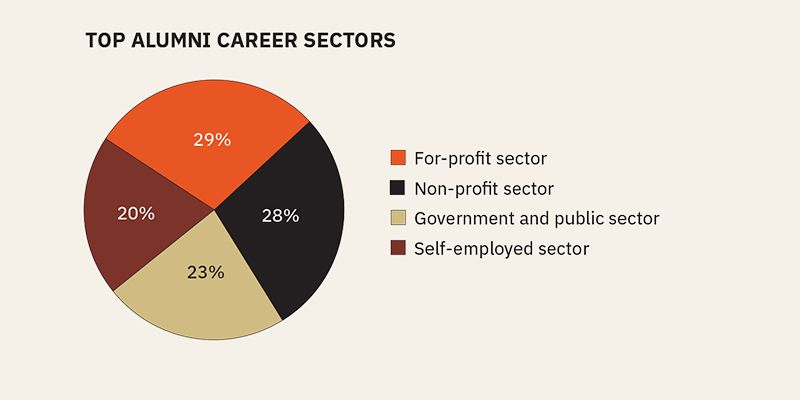
What Do Employers Say About the Johnnies They’ve Hired?
Boston University, Social Learning Lab
“Theo has been extremely helpful in launching a new project focusing on the development of religious cognition in the U.S. She has helped with all aspects of the project, including data collection, data analysis, and interpretation. She has been an excellent addition to and member of the lab.”
Maryland Office of the Public Defender
“No matter what I asked Rosie to do, she did it with great care and precision. Her work helped assist me with filing motions, jail visits, and help in the courtroom. Rosie has been especially excited about and willing to accompany me when it’s necessary to interview experts regarding our cases, and she is pleased to give her thoughts on how information from these experts could inform our cases, which has been very helpful.”
New Mexico Institute of Mining & Technology, The Elliott Lab
“Susmi showed great intellectual insight in connecting theoretical ideas and in thinking critically about experimental data. Her motivations to pursue meaningful inquiry power her to persist through demanding tasks... She produced great work and contributed to a lab culture that prioritizes shared values and the pursuit of constant improvements in understanding.”
NASA Innovative Advanced Concepts
“Austin helped us understand where the project’s Principal Investigators had made contributions... His analysis helped NIAC understand some of our own work in new ways, and his assessments were used.”
Massachusetts House of Representatives
“From the beginning, Gregory expressed great interest in learning absolutely everything about the legislative process. His critical thinking was evident in his writing as he was often given little instruction but was still able to determine not only how to research and gather necessary information but also the most effective way of delivering it. His ability to adapt to the often unpredictable pace and direction of political life was also apparent.”
University of Chicago, Institute of Mind & Biology
“Sandrina did an excellent job this summer and she shows great promise for the future... Her work this summer has earned her co-authorship of a report that will be presented at the Society for Neuroscience meeting this fall. The graduate student she worked with speaks very highly of her work this summer.”
Pulse Marketing
“Bobin was a strong asset to our company. She is a quick study and critical thinker and her passion for learning and understanding data, data hygiene, and segmenting data is evident in her work. Her problem-solving and financial modelling skills are excellent, as is her attention to detail and quality of work. She is persistent, patient, dedicated, proactive, takes initiative, and is an excellent communicator. Her ability to work both independently and in a team environment make her an ideal candidate for continuing employment.”
UC Berkeley’s Language & Cognition Lab
“Alayna was an excellent communicator who went out of her way to learn as much as possible about her projects. Highlights for me were seeing her present on both of her studies (separately) at our lab meeting – she clearly had a strong handle on all that she was working on.”
Anne Arundel County Office of the State’s Attorney
“I have always been pleased with your students... Honor was an outstanding intern—interested in all aspects of the office. Always asking good questions and using this opportunity to learn from the attorneys. She would make a great attorney because she pays attention and reads closely examples of the work from various trials.”
Nepal Mediciti Hospital
“Apurva has done her job very well and helped our team tremendously. Her inquisitiveness has helped us look at cases from a different perspective and we hope she pursues her dream of becoming a doctor soon.”
Elan Ensemble
“Allegra was instrumental in strengthening our existing systems around social media implementation and annual planning. She took the lead with her project, doubled our followers, and has created content for the whole year from our backlog of resources. Here critical thinking, which is only heightened at St. John’s, enhances her value on a team.”
Historic Annapolis Foundation
“Nathan has become a tremendous asset to our small, hard-working staff. He is a self-starter and learner who doesn’t require constant oversight. He collaborates with staff on projects and offers thoughtful opinions and insights on a daily basis. He has adopted... a respect for our mission: to preserve our stories, protect our collections and history, and connect with our community.”
The National Geographic Magazine—Georgia
“Tbel’s major internship task was to develop a photo project that would represent old markets and traders in an interesting way. He was also asked to translate scientific news from our flagship content and write short blurbs for the magazine. I included him on a press trip to the mountains of Adjara and he prepared a blog story that won first place in an Adjara-related contest. Tbel is willing to learn about the science, art, peoples, and cultures of new lands and to share that knowledge with our readers. He has great talent in both photography and writing and can become a high-class photo journalist.”
Seoul National University
“Seung was very good at communicating with people from diverse backgrounds, who usually talk in their own domain-specific languages. She is definitely a good listener, who is also very good at delivering her ideas to other people verbally and in writing.”
Saint Phillip in the Hills
“Christopher could repeatedly discern creative solutions to issues as they arose and took initiative at every opportunity to learn and grow, to ask questions and weigh possibilities, and to dialogue. He is a skilled communicator and a critical and evaluative thinker who is diligent and self-motivated. At every turn, he proved an indispensable member of our team who is a joy to work with and to learn from.”
Polycentric Learning Group
“Luis is an extraordinarily thoughtful human being who is able to take on difficult material and assist in solving problems through dialogue and collaboration. He is also able to work independently with little direction.”
Independence Seaport Museum
“Joseph is forward-thinking and a very good listener who takes direction well. His eagerness to learn was very apparent. His detailed work on labelling and document transcription has been very valuable to Cliveden.”
Santa Fe Reporter
“Campbell is not easily discouraged, even in the face of criticism... He’s willing to rewrite pieces and rethink early assessments. His desire to learn is notable... I think you can teach anyone to write for a newspaper, but I don’t think you can teach anyone to truly care about doing it and Campbell truly cares about things. I don’t often see that with interns.”
University of Pennsylvania, Magee-Women’s Research Institute
“Bryn was an ideal summer intern and a joy to have in the lab: intelligent, engaged, motivated, hard-working... I was impressed with her ability to work independently and with her enthusiasm to learn the science behind her project. I have no qualms giving Bryn the highest acclaim for her performance.”
Thal Equine Veterinary Hospital
“Allison was a quick learner who retains information and accepts criticism well.... She was interested and engaged from the beginning and learned a great deal in her time here. I think she will shine in any area she chooses to pursue. It was a pleasure and privilege having her here.”
Suara Rakyat Malaysia (SUARAM)
“Overall, Onysha is excellent at what she does, can work independently, and will bring new perspectives to any organization.”
Ascension Medical Group—St. Vincent Carmel Women’s Health
“Sydney was excited and interested in everything, no matter what we did each day. She was an eager learner. Outstanding. My office staff also loved her. I would love to see her become a fellow physician in the future.”
University of Chicago, Human Behavioral Pharmacology Laboratory
“Lydia is a very fast learner who adapts to each new task in a flexible and positive manner. She is motivated to learn and a pleasure to work with. She has been quick to acquire all the skills required for human research.”
Denver CASA – Child Advocacy Organization
“Leah had the ability to think outside the box when problem-solving. She has great interpersonal and communication skills as well.”
Internships
Approximately half of Johnnies are awarded St. John’s-funded internships. The offices of Career Services and Personal and Professional Development help match students to the right internship for them, made possible by significant funding from the Hodson and Ariel internship programs. Participating businesses and organizations include:
Law and Government
- US House of Representatives
- US State Department
- Library of Congress
- Foreign Policy Association
- Hudson Institute
- American Civil Liberties Union
- American Enterprise Institute
- Ethics and Public Policy Center
- The African Union
- Consulate General of Georgia
- New Mexico State Legislature
- Maryland State Legislature
Higher Education
- Cornell University
- Tulane University
- UT Austin, Department of Classics
- University of Chicago, Graham School
- Bard College
- Notre Dame
- American Academy for Liberal Education
- University of Chicago
- University of New Mexico
- Columbia University
- University of California, Berkeley
Business
- Balbec Capital
- Arete Wealth Management
- Creative Conventions and Inventions
- Azlore Capital
- Thornburg Investment Management
- New Mexico State Pensions Fund
- Saturna Capital
Science and Medicine
- Environmental Protection Agency
- NASA
- Smithsonian Environmental Research Center
- Yale School of Medicine
- Memorial Sloan Kettering
- Cedars Sinai
- University of New Mexico Medical School
- Georgetown University Hospital
- University of Colorado’s Institute for Behavioral Genetics
- University of Chicago’s Institute for Mind and Biology
- UC Berkeley Neuroscience Institute
- USC’s Virtue Ideology & Morality Lab
- Nature Conservancy
- Wetlands Institute
- Audubon Society
- National Oceanic and Atmospheric Association
- Historic London Towns and Gardens
- US Naval Observatory
- Sandia National Labs
- Los Alamos National Labs
- Smithsonian Museum of Natural History
- Albuquerque BioPark
- Rocky Mountain Biological Laboratory
Arts and Media
- NPR
- National Geographic
- J. Paul Getty Museum
- NYU Press
- Green Lion Press
- University of New Mexico Press
- Princeton University Press
- Classical Academic Press
- RadioFree Europe
- Martha’s Vineyard Film Society
- NBC Dateline
- American Shakespeare Center
- New York Youth Symphony
- Travis Price Architects
- Creative Santa Fe
- Chatauqua Institution
- Site Santa Fe
- Center for Contemporary Art
- Art School of the Berkshires
Public Policy and Social Good
- Children’s Defense Fund
- United Nations Development Program
- City of Hope
- ACLU’s National Prison Project
- DC Public Defenders Office
- North Star Criminal Defense
- New Mexico Literacy Project
- Seeds of Peace
- Witness for Peace
- Amnesty International
- Heifer International
Where Do Students Work After Graduating from St. John’s?
- Ancestry.com
- Audible
- Botanic Technologies
- TerrAvion
- United States Naval Observatory
- Los Alamos National Labs
- Sandia National Labs
- Santa Fe Institute
- Arete Wealth Management
- Balbec Capital
- Saturna Capital
- Thornburg Investment
- LongView Asset Management
- New Mexico State Pension Fund
- MD Anderson
- Los Angeles Children’s Hospital
- Oregon Health Sciences University
- University of Chicago
- Yale University
- Harvard University
- New York Public Library
- Site Santa Fe
- Capitol Hill
- United States Senate
- United States House of Representatives
- Maryland State House
- New Mexico Roundhouse
- New Mexico Department of Education
- Philadelphia District Attorney’s Office
- PBS
- New York Times
- NPR
- Bloomberg News
- Bloomberg Businessweek
- Wall Street Journal
- Fox News
- CBS News
- ABC News
- The New Yorker
- Reuters
- U.S. News & World Report
- HuffPost
- National Review
- Great Hearts Academies
- The Key School
- Santa Fe Prep
- Maryland Public Schools
- New Mexico Public Schools
- Meow Wolf
- Gerald Peters Galleries
Popular Jobs for St. John’s College Graduates
- Neuroscientist
- Biologist
- Biotechnologist
- Psychologist
- Medical Doctor
- Professor of History
- Professor of Literature + Classics
- Professor of Law
- Attorney
- Judge
- Diplomat
- Foreign Service Officer
- Legislator / Politician
- Speechwriter
- Chief-of-Staff
- Financial Advisor
- Financial Analyst
- Business Consultant
- Business Strategist
- Entrepreneur
- Founder + CEO
- Nonprofit Founder
- Higher Education Administrator
- School Founder
- Principal / Headmaster
- Educator
- Arts Administrator
- Fine Artist
- Winemaker / Vintner
- Author
- Filmmaker / Documentarian
- Media Producer
- Journalist
- Web Developer
- Content Strategist
- Gallery Owner / Founder
- Museum Administrator
- Historian
- Scholar
- Public Intellectual
- Political Writer / Analyst
- Writer + Editor
- Communications Professional
- Science + Technology Researcher
- Data Researcher + Analyst
- Computational Analyst
Advanced Degrees After St. John’s
St. John’s graduates don’t just pursue advanced degrees at high rates—they pursue them at the highest level. Recent colleges and universities where students have matriculated include:
Law and Government
- Yale University
- Harvard University
- Princeton University
- Stanford University
- Boston University
- Columbia University
- University of Chicago
- New School for Social Research
- University of Texas
Languages and Literature
- Cambridge
- Oxford
- Princeton University
- University of Paris, The Sorbonne
- Harvard University
- University of London
- Cornell University
- New York University
- Emory University
- University of Iowa
- Middlebury
- University of California, Berkeley
STEM
- Johns Hopkins University
- CalTech
- MIT
- Stanford
- Dartmouth
- Duke
- Rensselaer Polytechnic University
- Tulane University
- Columbia University
- Duke University
- University of California, Davis
- George Mason University
- Brandeis University
- Vanderbilt University
- Bryn Mawr
- University of Edinburgh
- University of Pennsylvania
- Cal State Polytechnic Institute
Business Administration
- Harvard University
- University of Pennsylvania :Wharton School of Business
- Thunderbird: the Garvin School of Global Management
- Carnegie Mellon University
- University of New Mexico: Anderson School
Theology and Philosophy
- Harvard Divinity School
- Princeton Theological Seminary
- Notre Dame
- Catholic University of America
- Baylor University
- Tulane University
- University of Texas
- University of Toronto
- Boston College
Arts, Architecture and Media
- American Film Institute
- Rhode Island School of Design
- University of Southern California
- New York University
- Yale School of Drama
- Julliard School of Music
- Peabody Conservatory
- New England Conservatory
- Art Institute of Chicago
- Savannah College of Art and Design
- Ecole de Beaux-Arts
- London International School of Performing Arts
- Sotheby’s Institute
- Pratt
Pathways Fellowships
Pathways Fellowships fund students who wish to take additional coursework in the summers. In recent years, that includes:
Language
- German, Goethe Institute, Munich, Germany
- Hebrew, Hebrew University, Jerusalem, Israel
- Chinese, Princeton University, Beijing, China
- Latin, University of Washington, Seattle, WA
- Japanese, Middlebury College, Vermont
Mathematics
- Differential Equations, UC Berkeley, CA
- Linear Algebra, University of Florida, Gainesville, FL
Science
- Cognitive Science, Cornell University, Ithaca, NY
- Ecology and Animal Behavior, University of Houston
- Introduction to Modeling, Harvard University, Cambridge, MA
- Organic Chemistry, University of Maryland, College Park, MD
Social Science and Humanities
- Introduction to Creative Writing, Boston University, Boston, MA
- The British Novel from 1870, UNC, Chapel Hill, NC
Arts
- Summer Core Art Program, Marchutz Academy, Aix-en-Provence, France
- Landscape Architecture, Harvard University, Cambridge, MA
- Documentary Film Making, Massachusetts College of Art and Design
- Basic Woodworking, Center for Furniture Craftsmanship, Rockport, ME
Business
- Business Analytics, Harvard Business School
- Financial Accounting, Wharton School at University of Pennsylvania
- Economics for Managers, Harvard Business School
Awards and Fellowships
From the Fulbright to the Rhodes, St. John’s students are among the top recipients of awards and fellowships in the country. Past scholarships and fellowships include:
- Catherine B. Reynolds Foundation Fellowship for Harvard University
- Davis Projects for Peace
- Dow Jones Internship
- Fulbright Scholarship


